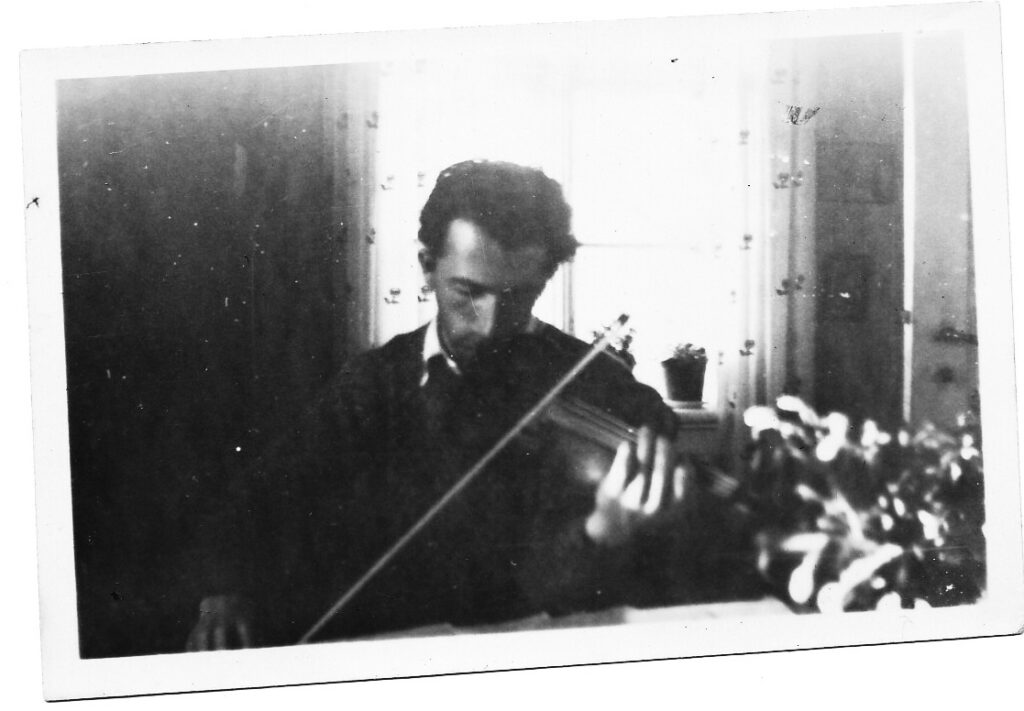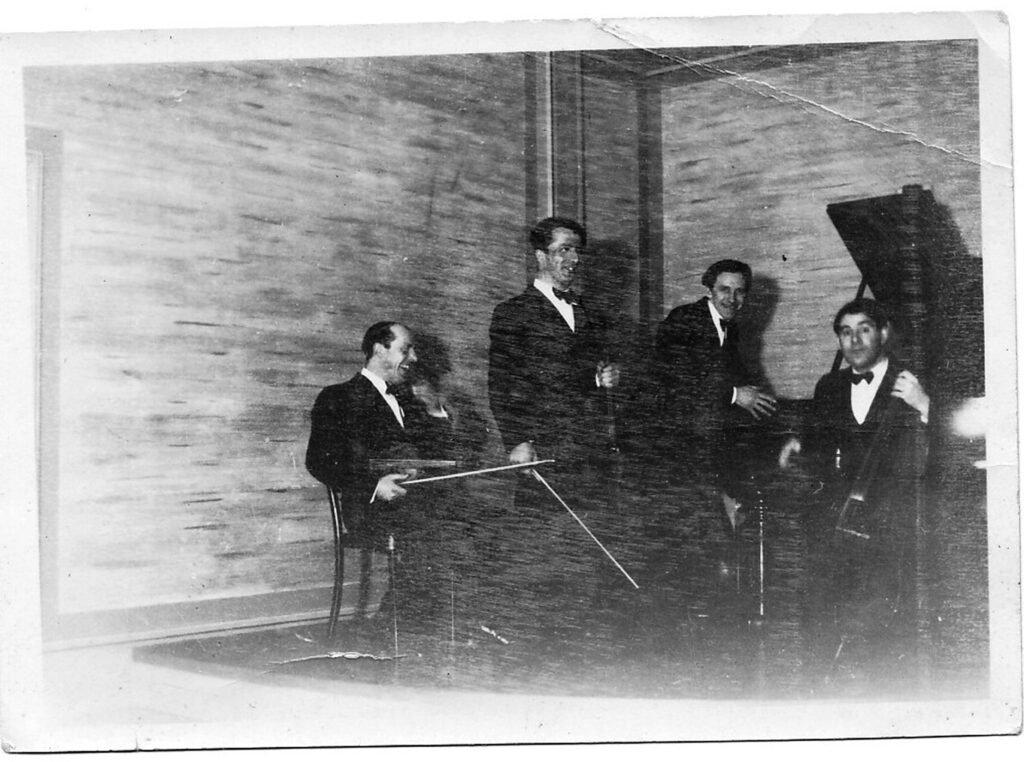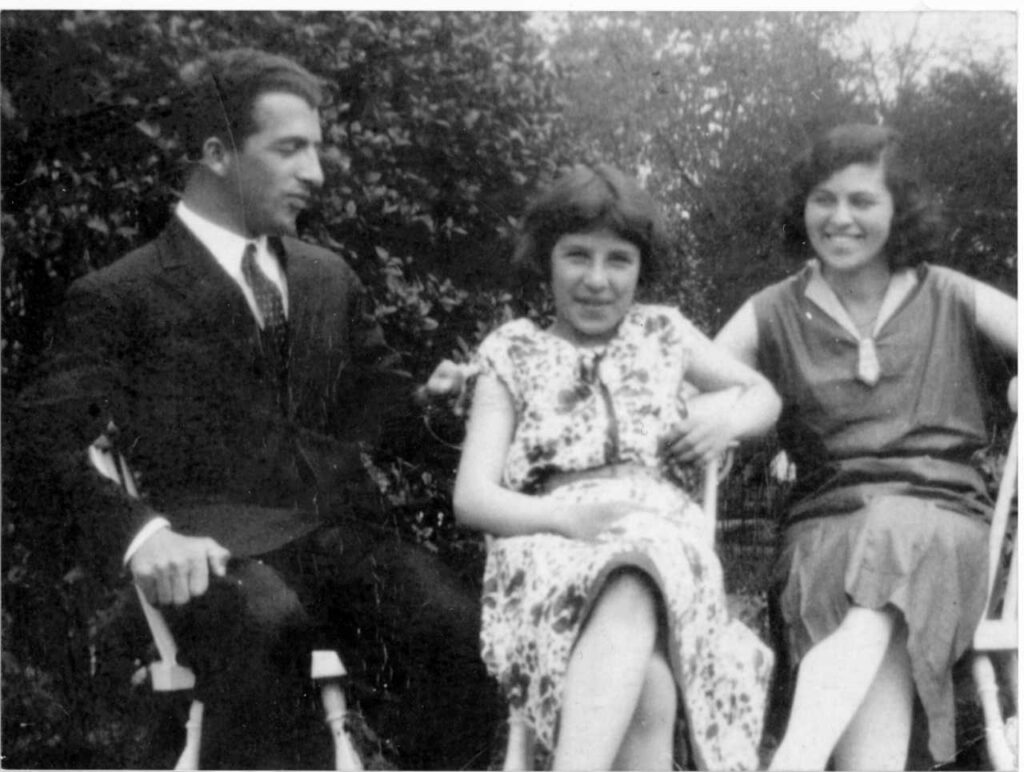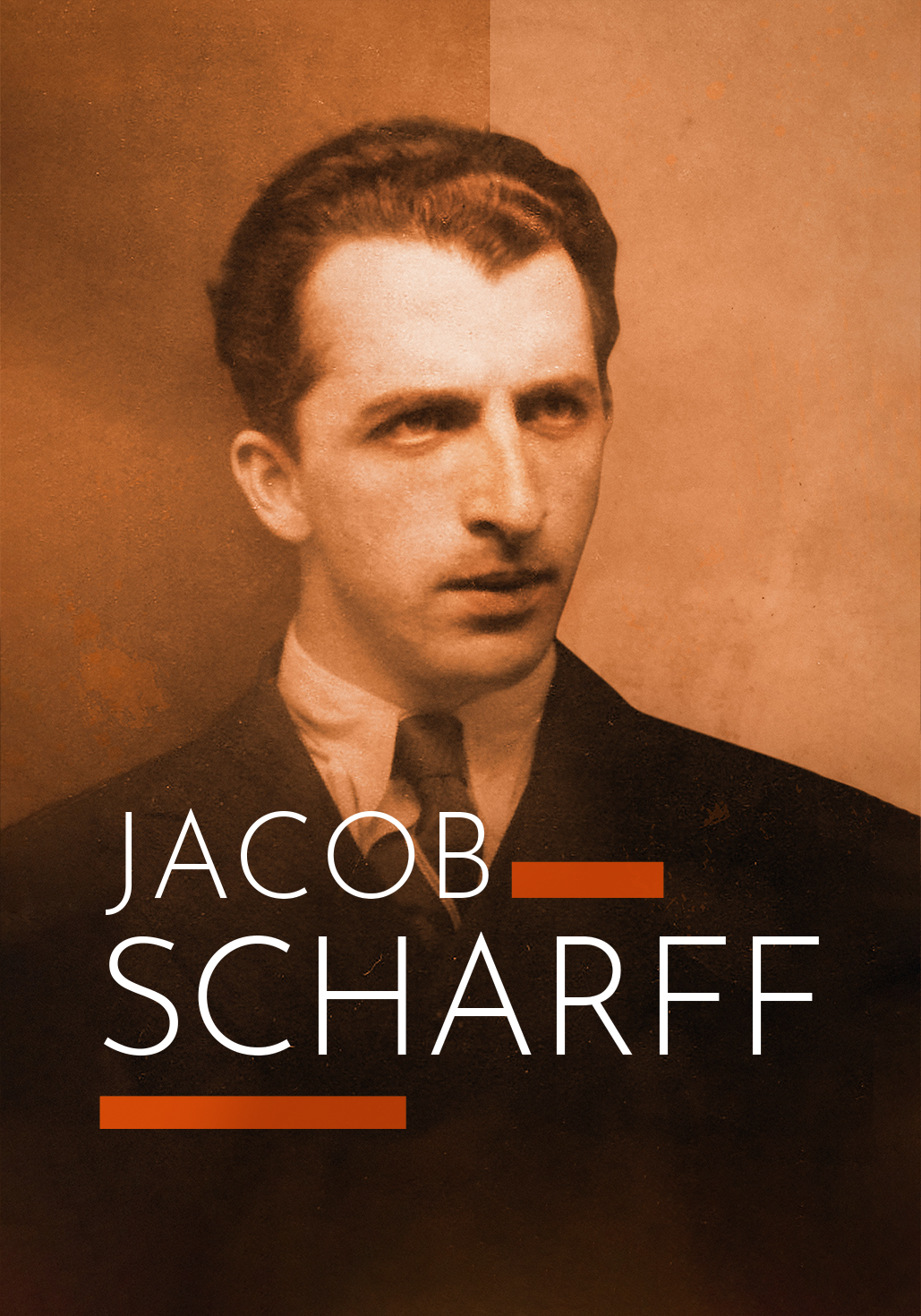26 X 1908 Kristiania (Oslo) – XII 1942 Auschwitz-Birkenau
Biography
Jacob Scharff was a violinist and composer. He had his own orchestra Scharff’s Orkester, and as a violinist played in radio concerts and on gramophone recordings.
Jacob Scharff, born in Oslo, was the eldest of five children. His parents, Gjertrud Gitel and Alexander Moses Scharff, were born in today’s Latvia. The family moved to Hønefoss, Norway, in 1915. Like the rest of the family, he was very musical. He was a violinist, composer, and teacher. In fact, he was the only violin teacher in Hønefoss. On occasions when a city orchestra was formed, Jacob would be asked to lead it. He also had his own orchestra, Scharff’s orkester, and he shared his musical talent in hotels and when visiting relatives. As of 1939, he also played with the accordion virtuoso Harald Henschien and his trio. In addition to touring, the trio played radio concerts broadcast by NRK (the Norwegian Broadcast Corporation), and made gramophone recordings, providing entertainment for all of Norway.
In 1942, Jacob Scharff entered a competition arranged by Rytme (‘Rhythm’) magazine with a composition entitled Skjønne Sorina (‘Beautiful Sorina’), a Gypsy tango. It proved to be a long-lasting success, but all Jacob Scharff got to know, was that he came in third place. He was one point away from second place, and was awarded 200 Norwegian kroner. The tango was described as melancholy and beautiful, and was about a man who leaves his beloved, never to return. In 1946, the Rytme magazine published an obituary for Jacob Scharff in which it wrote that he “would surely have become one of those we would have heard a lot from in the future”.
After he was arrested on 26 October 1942, Jacob Scharff was detained at Bredtveit prison along with his father and brother Julius. The men were subsequently sent to Camp Berg outside Tønsberg. Along with several family members – but without his violin – Jacob was deported on the SS Donau on 26 November 1942. He refused to play in the camp orchestra, and was killed at Auschwitz-Birkenau in December 1942.

Jacob Scharff plays the violin. From the collection of Oslo Jewish Museum

Jacob Scharff with the band. From the collection of Oslo Jewish Museum

Jacob Scharff with his sisters. From the collection of Oslo Jewish Museum
Jacob Scharff was a violinist and composer. He had his own orchestra Scharff’s Orkester, and as a violinist played in radio concerts and on gramophone recordings.
Jacob Scharff, born in Oslo, was the eldest of five children. His parents, Gjertrud Gitel and Alexander Moses Scharff, were born in today’s Latvia. The family moved to Hønefoss, Norway, in 1915. Like the rest of the family, he was very musical. He was a violinist, composer, and teacher. In fact, he was the only violin teacher in Hønefoss. On occasions when a city orchestra was formed, Jacob would be asked to lead it. He also had his own orchestra, Scharff’s orkester, and he shared his musical talent in hotels and when visiting relatives. As of 1939, he also played with the accordion virtuoso Harald Henschien and his trio. In addition to touring, the trio played radio concerts broadcast by NRK (the Norwegian Broadcast Corporation), and made gramophone recordings, providing entertainment for all of Norway.
In 1942, Jacob Scharff entered a competition arranged by Rytme (‘Rhythm’) magazine with a composition entitled Skjønne Sorina (‘Beautiful Sorina’), a Gypsy tango. It proved to be a long-lasting success, but all Jacob Scharff got to know, was that he came in third place. He was one point away from second place, and was awarded 200 Norwegian kroner. The tango was described as melancholy and beautiful, and was about a man who leaves his beloved, never to return. In 1946, the Rytme magazine published an obituary for Jacob Scharff in which it wrote that he “would surely have become one of those we would have heard a lot from in the future”.
After he was arrested on 26 October 1942, Jacob Scharff was detained at Bredtveit prison along with his father and brother Julius. The men were subsequently sent to Camp Berg outside Tønsberg. Along with several family members – but without his violin – Jacob was deported on the SS Donau on 26 November 1942. He refused to play in the camp orchestra, and was killed at Auschwitz-Birkenau in December 1942.

